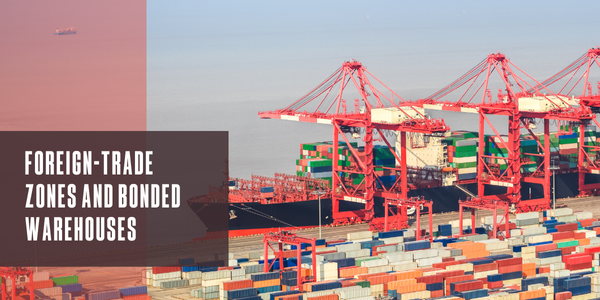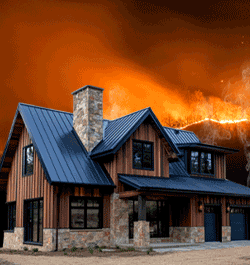UP TO THE MINUTE
Foreign-trade zones and bonded warehouses for the roofing industry
May 7, 2025 at 10:00 a.m.By Trent Cotney.
Learn how Foreign‑Trade Zones and Customs‑Bonded Warehouses can transform tariff uncertainty from a cost center into a competitive advantage.
Persistent tariffs on steel, aluminum, solar components and other imported roofing accessories have increased the prices of construction materials. At the same time, erratic lead‑times and port congestion continue to disrupt project schedules. To control cash‑flow and hedge against further trade volatility, more roofing manufacturers and contractors are exploring two long‑standing, but often misunderstood, customs programs: U.S. Foreign‑Trade Zones (FTZs) and Customs‑Bonded Warehouses (CBWs). Choosing the right program can turn inventory into a strategic asset rather than a budgetary liability.
Foreign-Trade Zone
A Foreign‑Trade Zone is a secured area that, for customs purposes, is treated as being outside U.S. territory even though it sits on American soil. Merchandise may enter an FTZ without immediate payment of customs duty. Companies can store goods indefinitely, assemble or manufacture new products and then decide whether to enter them into U.S. commerce, re‑export them or destroy them, while always choosing the most favorable duty rate between the imported components and the finished article. The program is administered jointly by U.S. Customs and Border Protection (CBP) and the Foreign‑Trade Zones Board.
Customs Bonded Warehouse
A Customs Bonded Warehouse, by contrast, remains inside U.S. customs territory but under bond. Import duties are deferred for up to five years after which the goods must be withdrawn for consumption (with duty paid), reexported or destroyed under supervision. Only limited “manipulation” such as sorting, repacking or cleaning is allowed unless the operator secures a special manufacturing bond. CBWs are simpler to activate than FTZs and can be established almost anywhere that meets CBP security standards.
Uses in roofing
For roofing manufacturers, the FTZ’s inverted‑tariff rule can slash landed costs on some materials. An inverted tariff exists when the U.S. import duty on a finished product is lower than the duty on one or more of the foreign components that go into making that product. However, as it relates to Section 232 steel tariffs (25%), coil would fall under privileged-foreign status (PF) meaning that even if you formed the coil into panels, you would still pay the original coil tariff price.
Unlimited storage time is another draw; surplus hurricane‑season inventory can sit in the zone year‑round without tying up duty cash. Because all manufacturing can take place before duty is paid, a single movement of goods from the FTZ into the domestic market eliminates double handling and customs paperwork.
Those benefits come with overhead. Firms must apply to the FTZ Board, install 24‑hour surveillance and run a real‑time inventory‑control system that mirrors every zone transaction in CBP’s ACE portal. Annual operator fees typically start around $10,000 and rise with volume. Geography also matters: FTZs must be located within 60 miles of a designated port of entry, so inland contractors may find activation impractical.
A bonded warehouse offers a gentler learning curve. Because the site remains within customs territory, activation is handled directly by the local CBP port and ongoing user fees are minimal. The five‑year deferment window is often more than adequate for contractors who import copper coil or fasteners for a specific project, but need to park the material while permits wind their way through local building departments. If tariffs drop before withdrawal, duty is paid at the lower rate in force on that date.
The limitations are real. Any substantive manufacturing in the bonded warehouse requires an additional bond and CBP approval that can take months. The five‑year clock keeps ticking even if the market for a particular product evaporates; once time is up, the importer must pay the duty or destroy the goods. Inventory reconciliations are unforgiving, and discrepancies expose the warehouse’s surety bond to liquidated damages.
Manufacturers and contractors must decide between the programs by modeling duty savings against compliance cost. Roofing contractors and distributors rarely operate their own zones or warehouses, but they can leverage third‑party facilities run by ports or logistics providers. A contractor expecting to reroof multiple data centers over the next three years could purchase a bulk shipment of materials, store it in a public FTZ, and draw materials just‑in‑time as each project mobilizes. Alternatively, a bonded warehouse is ideal for staging a one‑off shipment of materials while awaiting specification approval: duty is suspended, compliance overhead is low and the five‑year window is more than sufficient.
Whatever path you choose, trade compliance must be baked into your enterprise resource‑planning system. CBP demands ACE‑compatible inventory records that reconcile to the piece level; inaccurate counts can trigger duty bills that dwarf any savings. You must also segregate U.S.‑origin and foreign‑origin stock physically to prevent commingling violations. Before committing to an FTZ, run a multi‑year cost‑benefit analysis that quantifies annual zone fees, software costs and surety bond premiums against the cash‑flow benefit of deferred or eliminated duty.
Start early with a qualified customs broker and supply‑chain attorney. Map your material flow, model different tariff scenarios and choose the program that aligns with your inventory velocity and production cycle. If you need unlimited storage or plan to add significant value to imports, an FTZ is usually the superior tool. If your goal is simply to suspend duties on a handful of high‑value shipments while market prices settle, a bonded warehouse will deliver 80 percent of the benefit at a fraction of the compliance cost.
Used strategically, Foreign‑Trade Zones and Customs‑Bonded Warehouses can transform tariff uncertainty from a cost center into a competitive advantage. By deferring duties, smoothing cash‑flow and giving you room to maneuver when supply chains tighten, these programs help roofing companies keep projects on schedule and on budget in a trade environment that shows no sign of stabilizing anytime soon.
Trent Cotney is a partner and Construction Team Leader at the law firm of Adams & Reese, LLP and NRCA General Counsel. You can reach him at trent.cotney@arlaw.com or 866.303.5868.
Learn more about Adams & Reese LLP in their Coffee Shop Directory or visit www.adamsandreese.com.
The information contained in this article is for general educational information only. This information does not constitute legal advice, is not intended to constitute legal advice, nor should it be relied upon as legal advice for your specific factual pattern or situation.























Comments
Leave a Reply
Have an account? Login to leave a comment!
Sign In